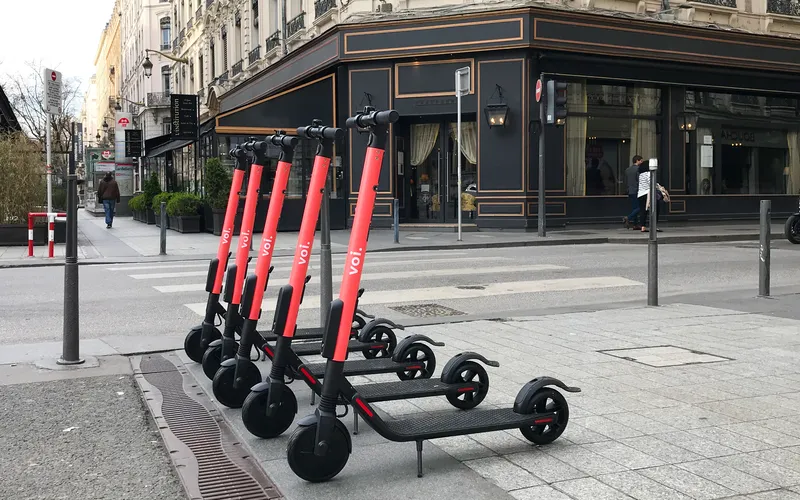
Voi is to deploy 150 electric scooters with safety features across two cities in the West of England.
The micromobility operator will supply 50 e-scooters in Bath and a further 100 in Bristol as part of a collaboration involving the West of England Combined Authority (WECA), Bath & North East Somerset, Bristol and South Gloucestershire Councils.
The new safety measures will mean e-scooters will not exceed 10mph.
No-ride zones and slow-speed zones will be established using GPS technology while riders who travel outside the operating zone will be blocked, bringing the e-scooter to a stop.
All e-scooters can be identified by number plates and riders must have driving licence.
Voi says only e-scooters hired or leased through the trial can be used legally on roads, cycle lanes or cycle tracks.
Additionally, the e-scooters must not be used on pavements or parked in a way that disrupts pedestrians, the company adds.
As part of the trial, Voi is to work with WECA, local police forces and groups such as Age UK and Disabilities Move UK to ensure the needs of vulnerable people are considered during the trial.
The company will also hold weekly safety pop-up events in which ambassadors will answer questions about how to use the scooters safely and give away free helmets for riders. All new riders are encouraged to complete Voi's digital e-scooter traffic school RideLikeVoila.
Voi is hoping its e-scooters will save 88 to 196 tonnes of carbon dioxide (CO2) equivalent in the West of England.
E-scooters will be available to unlock for 99p and cost 14p per minute. The service offers a variety of subscriptions including daily (£5), weekly (£10) and 30 days (£35).
Riders can download the Voi app for free in the Apple App Store or Google Play.
Voi is not the only company deploying e-scooters with safety features in the UK.
Neuron has also entered an agreement with Slough Borough Council to deliver 250 e-scooters over the next 12 months.










